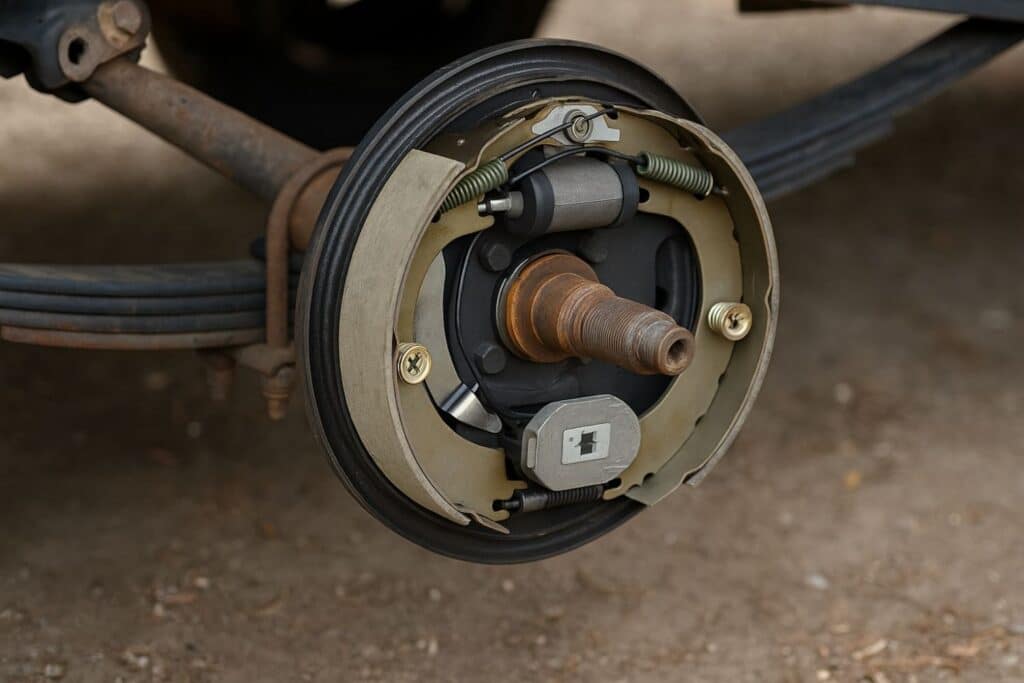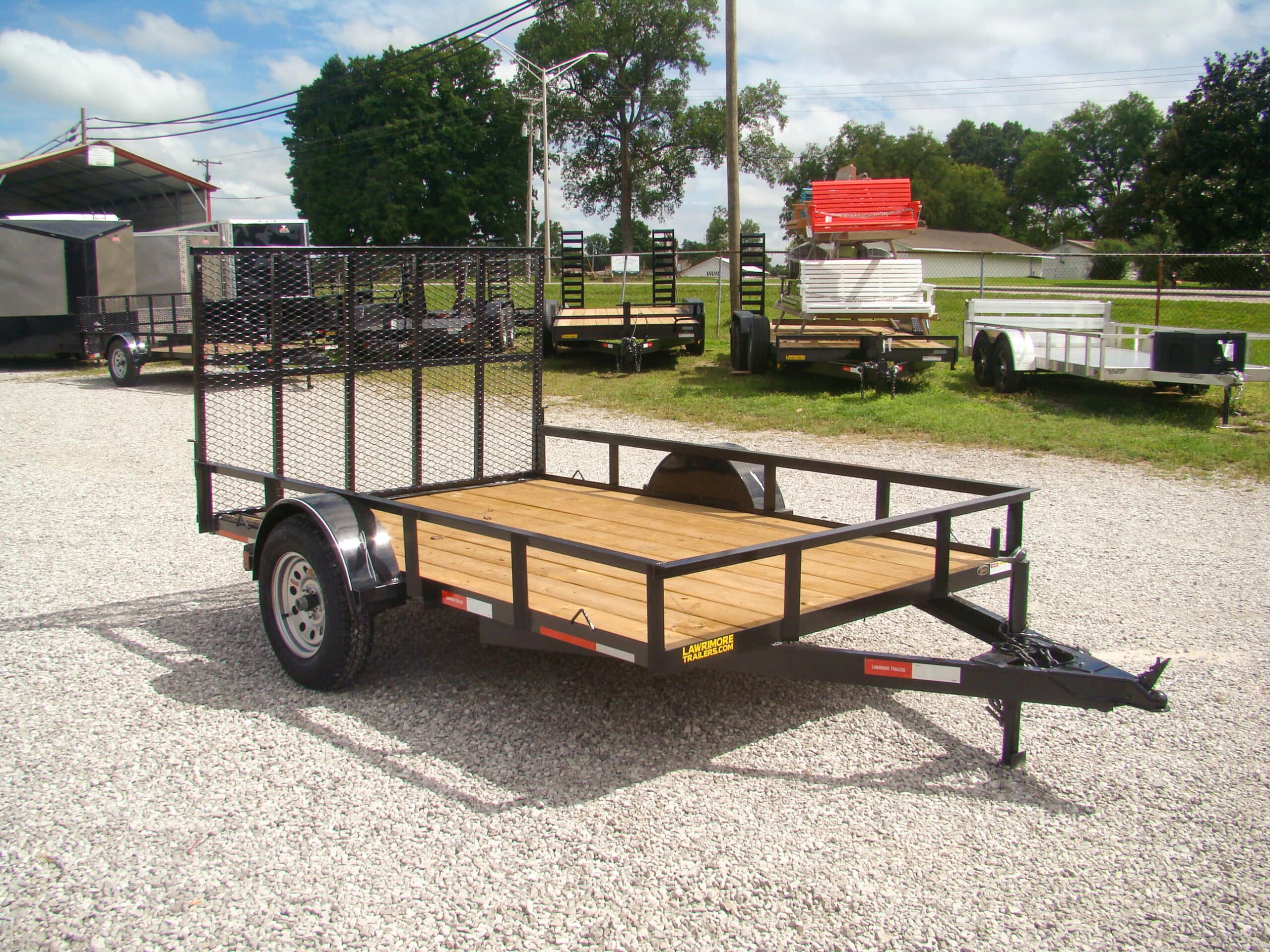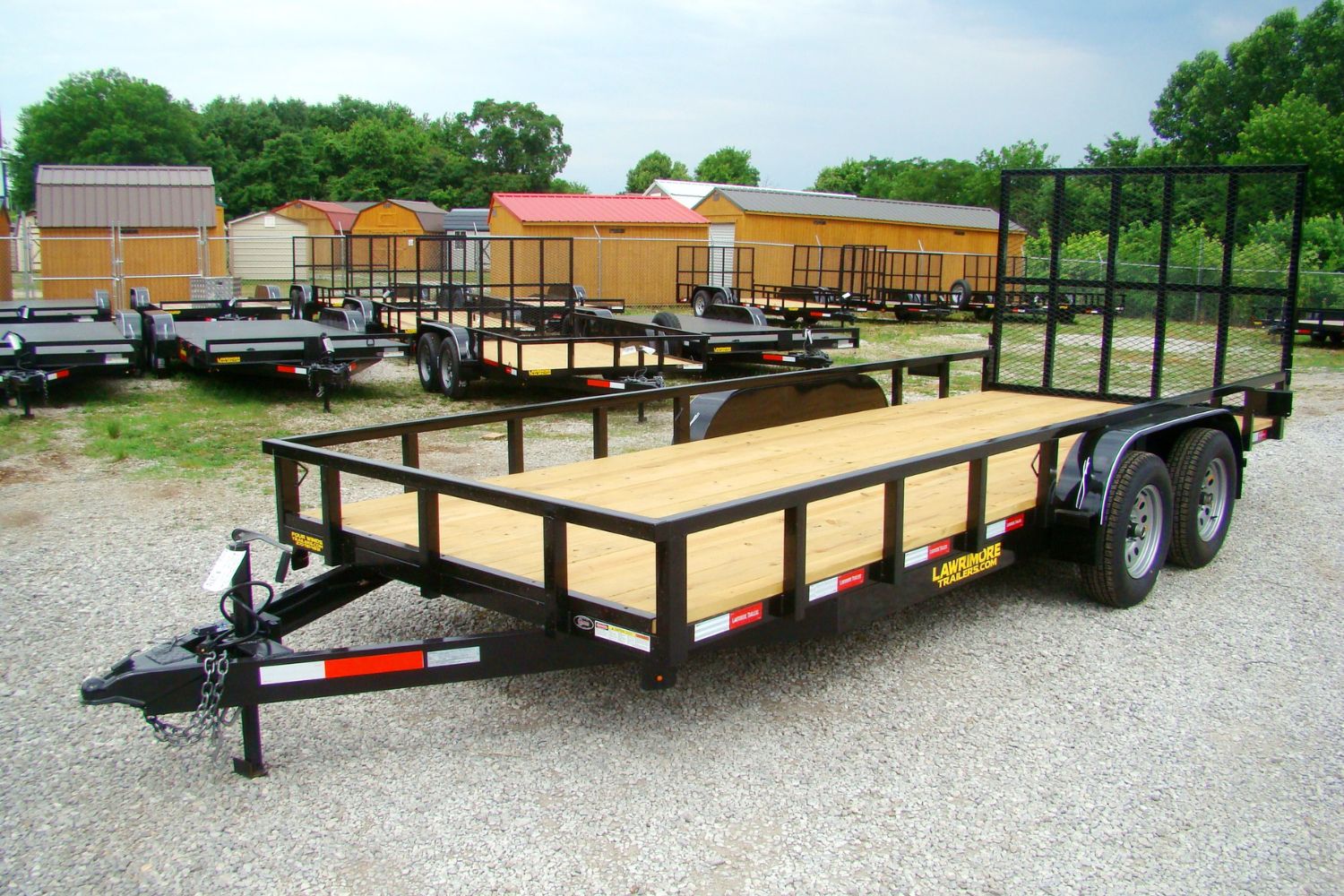
Rust and corrosion can slowly eat away at your trailer’s value, safety, and longevity if left unchecked. Whether you’re hauling heavy equipment or towing a car, trailer rust problems can creep up on even the most experienced haulers, especially when left untreated or unnoticed. In fact, rust is one of the most common trailer issues owners face, as outlined in our guide to common trailer problems. In this post, we’ll break down the root causes of rust and corrosion, how to fix trailer corrosion before it spreads, and simple steps to prevent it for the long haul.
Looking for a brand-new trailer instead? Browse all our trailer models here or request a free quote to get started!
Why Trailers Rust: The Most Common Causes

Rust doesn’t just appear overnight, it’s usually the result of ongoing exposure to harsh conditions or overlooked maintenance. Here are some of the most common reasons trailers develop rust and corrosion:
- Exposure to Road Salt & Moisture: Winter weather and salty roads are notorious for speeding up corrosion.
- Poor Storage Conditions: Leaving your trailer exposed to the elements leads to oxidation over time.
- Lack of Protective Coating: If your trailer doesn’t have a proper powder coat or rust-resistant finish, it’s more vulnerable to breakdown.
- Material Type: Steel trailers tend to rust faster than aluminum, learn more about the differences in What Are Trailers Made Of?
Trailers like dump trailers and wood haulers often face the harshest environments, making rust prevention even more important for those applications.
How to Fix Trailer Rust or Corrosion

If your trailer is already showing signs of rust, don’t panic, as there are effective ways to stop the damage and restore your trailer’s condition. Here’s how to fix trailer rust and corrosion before it spreads further:
1. Inspect the Frame and Undercarriage
Start by giving your trailer a thorough visual inspection. The most vulnerable areas tend to be:
- Welds and joints
- Undercarriage and frame rails
- Inside corners or crevices that hold water
- Around fenders, brackets, and suspension mounts
Use a flashlight and, if possible, elevate the trailer slightly to see underneath. Rust often begins as small bubbles under the paint or faint discoloration, so don’t just look for large flakes, early detection is everything.
Want to know if your trailer might be at risk? What Are Trailers Made Of blog breaks down materials like steel vs. aluminum and their rust resistance.
2. Clean and Remove Surface Rust
Once you’ve identified the problem spots, it’s time to get hands-on. For surface rust (which hasn’t penetrated deeply), start by:
- Scraping or grinding off loose rust using a wire brush, power drill, or angle grinder with a flap disc.
- Sanding down the area to remove all rust particles.
- Cleaning the metal thoroughly with a degreaser or brake cleaner to eliminate any oil, salt, or debris.
For heavier corrosion, apply a rust dissolver or rust converter. These chemical treatments neutralize rust and turn it into a stable surface that can be painted over, especially helpful if you can’t reach every nook and cranny.
3. Apply Primer and Protective Paint
With the rust gone, your next step is sealing the surface to prevent it from coming back. Use an anti-corrosion primer made for metal trailers or automotive frames, followed by an outdoor-grade, rust-inhibiting paint.
Pro Tip:
Apply multiple light coats and allow proper drying time between each. For maximum protection, use a top coat or clear sealant designed to handle weather, UV rays, and road spray.
This step is especially important for open car haulers, dump trailers, or utility trailers that frequently encounter dirt, gravel, and rain.
4. Replace Severely Corroded Parts
Sometimes rust goes beyond what a wire brush and paint can fix. If you notice pitting, cracking, or holes in structural areas, it’s time to replace the affected parts. Common components that may need swapping out include:
- Fenders and jacks
- Brake or marker lights
- Steel couplers or hitches
- Bolts, brackets, or safety chains
You can find many of these parts in our trailer parts inventory. Replacing instead of repairing can save you money and frustration in the long run, especially when it comes to safety-critical components.
If you’re not sure how to identify which parts are salvageable or need replacement, we’ve got your back. Our service team offers inspections, welding, and part installation. Contact us to schedule a repair or request a quote.
Preventing Rust & Corrosion Long-Term

Stopping rust before it starts is the best way to protect your investment. With just a few simple habits, you can keep your trailer looking sharp and performing like new for years to come. Here are a few proven ways to prevent trailer rust and corrosion long-term:
- Wash Your Trailer After Winter Use
Rinse salt and debris off regularly, especially if you drive through Kentucky’s rural roads.
➤ See: Everything You Need to Know About Kentucky Trailer Laws - Schedule Routine Maintenance
Consistent upkeep is key, check out our full guide on Trailer Maintenance for Longevity. - Store Trailers Under Cover
Protect your utility trailer or enclosed trailer in a dry garage or under a carport when not in use. - Use Anti-Rust Sprays Before Long Trips
Especially if you’re hauling heavy equipment or using a gooseneck trailer, pre-treat vulnerable areas before your journey.
Does Rust Impact Trailer Value?
Absolutely. Rusty trailers depreciate faster and may fail safety inspections. If you’re budgeting for a trailer upgrade, check out our post on How Much Does a Trailer Cost? or browse our new and used trailer inventory.
Is Renting a Better Option for You?
If rust prevention and maintenance sound like a headache, you might consider renting instead. Compare your options in our Renting vs. Owning Trailers Guide.
Bonus Tips for Trailer Rust Prevention

Already following the basics? Great! Here are a few extra tips that can go a long way in keeping rust and corrosion in check, especially if you’re hauling regularly or across long distances:
- Choose the Right Trailer Size
Avoid overloading and stressing the frame by using the correct size for your needs. See our Trailer Sizes Guide. - Use the Proper Hitch Setup
The wrong hitch can cause unnecessary friction or dragging that wears down protective coatings. Check out Your Guide to Choosing the Right Trailer Hitch. - Double Check Your Lights
Bad wiring or cracked light housings can let in water, speeding up corrosion. Learn more about trailer lights here.
Bottom Line? Keep Rust in Check
Trailer corrosion problems may start small, but if ignored, they can cost you thousands. By learning how to fix trailer rust early and following basic maintenance steps, you’ll keep your trailer safe, functional, and looking great for years to come.
Looking for the right trailer that holds up against the elements? Explore our selection of car haulers, dump trailers, and tow dollies, or reach out to our team for help choosing one that’s rust-resistant and ready to go.
